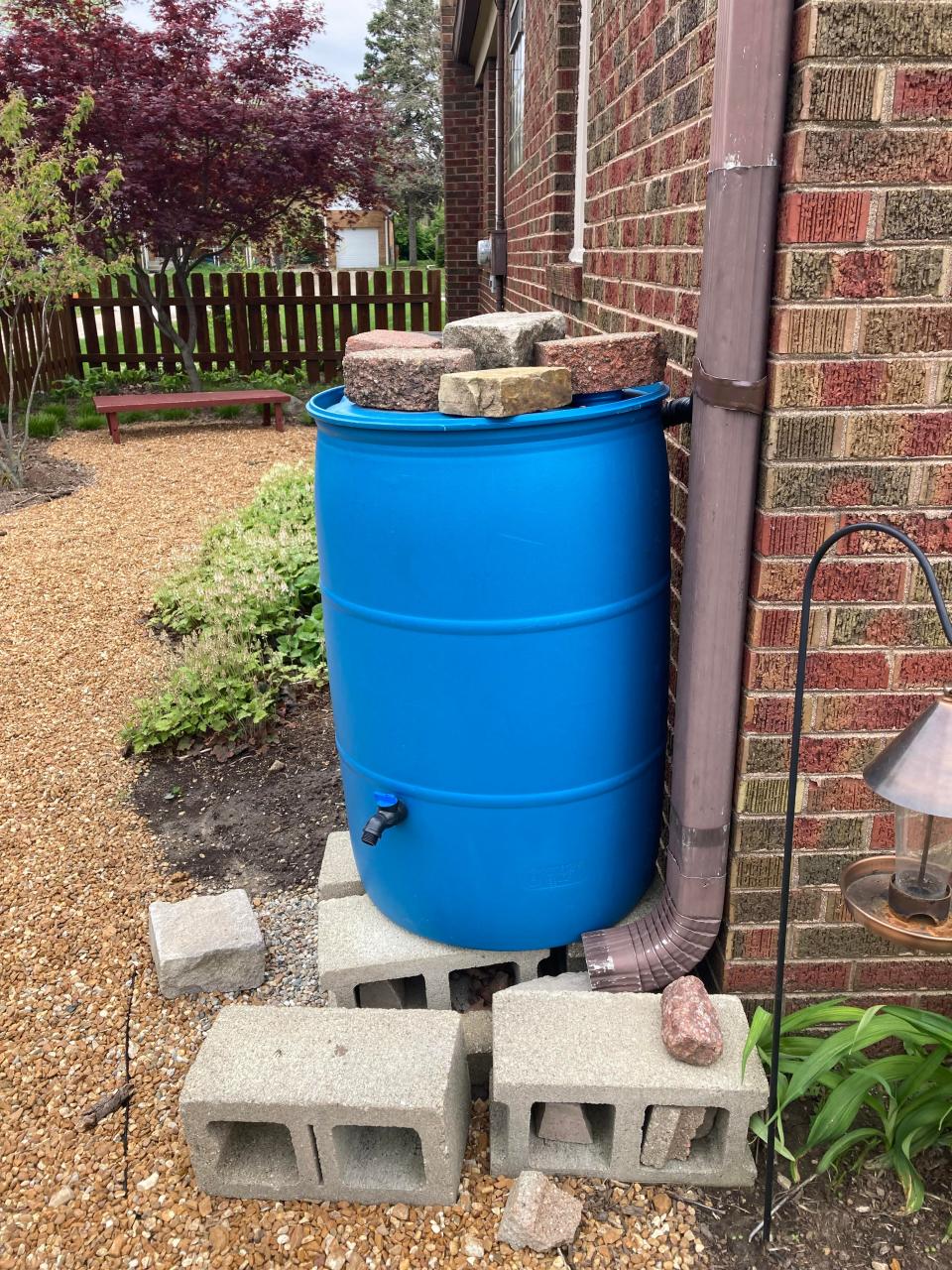Scrub Hub: Why should I consider using rain barrels at my home?
Hoosiers have experienced an abnormally dry spell with moderate drought conditions seeping into Central Indiana as spring turns to summer.
The lack of recent rain spells frustration for residential gardeners hoping for decent harvests and lush landscapes. So, to (hopefully) help solve this dilemma, we focus this edition on Scrub Hub on a potential solution: What benefits do rain barrels provide?
We spoke with local water conservationists and a rain barrel retailer for answers.

Short answer: An inexpensive fix for thirsty plants
Obviously, holding on to rainwater is a great way to thwart dry spells for your garden, and a barrel can save up to 1,300 gallons in peak summer months.
John Hazlett, district manager at the Marion County Soil and Water Conservation district says the water captured by rain barrels is of good quality, being soft with lower pH.
“It’s not chlorinated like a public water supply and the plants absolutely love it for that reason," Hazlett said.
Almost half of household water use goes to watering lawns and outdoor plants, he said, and rain barrels are a perfect way to replace that with the water harvested from your roof. Just remember, that doesn't mean it's safe for drinking.
Claire Lane with the Hamilton County Soil and Water Conservation District said rain water also is great for washing windows and cars, giving pets a bath, and many other uses.
Long answer: An easy install that relieves the stormwater system
Rain barrels are easy to install and can be found at various places throughout Central Indiana.
Hazlett often recommends people to the Kheprw Institute’s Express Yourself Rain Barrel, which is an Indianapolis-based youth empowerment program where Hoosiers can buy the barrels. Kahlil Mwaafrika is the education manager and helps run the program that teaches entrepreneurial skills and how to interface with the community.
Full rain barrel kits can be purchased on expressyourselfrainbarrels.com and picked up at 2525 Boulevard Place.
After purchase, a rain barrel is pretty straightforward to install. There’s a full list of materials on the Marion County SWCD’s website, but generally it’s a series of fittings, a diverter for the downspout and the barrel itself.
Both Hazlett and Lane recommend installing the barrel on top of some sort of platform to make using the barrel easy and maximize water pressure. It’s best to use a barrel to fill a watering can, but they typically have enough pressure to make soaker hoses a viable option, too.
The barrels fill up quickly, and Hazlett recommends having the overflow sent toward a rain garden. If planting or maintaining a rain garden isn’t feasible, it is at least important to make sure the overflow does not back up towards the foundation of the house.
Weather: Abnormally dry month for Indiana impacts farmers, but how severe is it?
While all these steps will provide a great source of water for your lawn and garden, using rain barrels also keeps water out of municipal stormwater systems.
“They’re a great way to save some water and hold it back for future use but also help limit pressure on stormwater treatment because you’re holding water back on your property instead of letting it run away,” Lane said. “Now it’s not picking up gasoline or fertilizer from your sidewalk or driveway.”
This keeps those potential pollutants from reaching waterbodies like the White River, Hazlett said.
IndyStar's environmental reporting project is made possible through the generous support of the nonprofit Nina Mason Pulliam Charitable Trust.
This article originally appeared on Indianapolis Star: Scrub Hub: Are rain barrels a good idea for Hoosiers?

